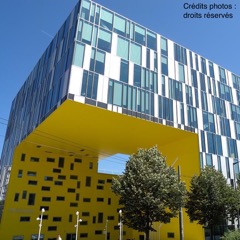Cellular Automata have been used since their introduction as a discrete tool of modelization. In many of the physical processes one may modelize thus (such as bootstrap percolation, forest fire or epidemic propagation models, life without death, etc), each local change is irreversible. The class of freezing Cellular Automata (FCA) captures this feature. In a freezing cellular automaton the states are ordered and the cells can only decrease their state according to this "freezing-order".
We investigate the dynamics of such systems through the questions of simulation and universality in this class: is there a Freezing Cellular Automaton (FCA) that is able to simulate any Freezing Cellular Automata, i.e. an intrinsically universal FCA? We show that the answer to that question is sensitive to both the number of changes cells are allowed to make, and geometric features of the space. In dimension 1, there is no universal FCA. In dimension 2, if either the number of changes is at least 2, or the neighborhood is Moore, then there are universal FCA. On the other hand, there is no universal FCA with one change and Von Neumann neighborhood.

 PDF version
PDF version
